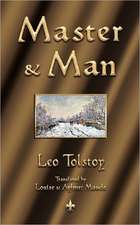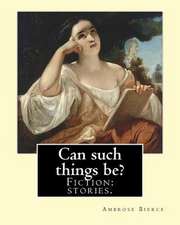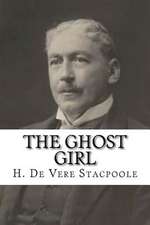The Last Day of a Condemned Man: Mint Editions
Autor Victor Hugoen Limba Engleză Paperback – iun 2021
The Last Day of a Condemned Man
Le Dernier jour d'un condamnE]
Victor Hugo
Translated by Eugenia De B.
The Last Day of a Condemned Man (French: Le Dernier Jour d'un CondamnE) is a short novel by Victor Hugo first published in 1829. The novel recounts the thoughts of a man condemned to die. Victor Hugo wrote this novel to express his feelings that the death penalty should be abolished.
At the head of the earlier editions of this work, published at first without the name of the author, there was nothing but the following lines.
"There are two ways of accounting for the existence of this work. Either there really has been found a bundle of yellow, ragged, papers, on which were inscribed, exactly as they came, the last thoughts of a wretched being; or else there has been a man, a dreamer, occupied in observing nature for the advantage of art, a philosopher, a poet, who, having been seized with these forcible ideas, could not rest until he had given them the tangible form of a volume. Of these two explanations, the reader will choose that which he prefers."
As is seen, at the time when this book was first published, the author did not deem fit to give publicity to the full extent of his thoughts. He preferred waiting to see whether the work would be fully understood. It has been. The author may now, therefore, unmask the political and social ideas, which he wished to render popular under this harmless literary guise. He avows openly, that The Last Day of a Condemned is only a pleading, direct or indirect, as is preferred, for the abolition of the penalty of death. His design herein and what he would wish posterity to see in his work, if its attention should ever be given to so slight a production, is, not to make out the special defense of any particular criminal, such defense being transitory as it is easy; he would plead generally and permanently for all accused persons, present and future; it is the great point of human right, stated and pleaded before society at large, that highest judicial court; it is the sombre and fatal question which breathes obscurely in the depths of each capital offense, under the triple envelopes of pathos in which legal eloquence wraps them; it is the question of life and death, I say, laid bare, denuded and despoiled of the sonorous twistings of the bar, revealed in daylight, and placed where it should be seen; in its true and hideous position, not in the law courts, but on the scaffold, not among the judges, but with the executioner
This is what he has desired to effect. If futurity should award him the glory of having succeeded, which he dares not hope, he desires no other crown.
| Toate formatele și edițiile | Preț | Express |
|---|---|---|
| Paperback (5) | 44.25 lei 3-5 săpt. | +5.58 lei 6-12 zile |
| Alma Books COMMIS – 4 noi 2021 | 44.25 lei 3-5 săpt. | +5.58 lei 6-12 zile |
| Dover Publications – 31 mai 2009 | 48.87 lei 3-5 săpt. | |
| CreateSpace Independent Publishing Platform – | 72.73 lei 3-5 săpt. | |
| Mint Editions – iun 2021 | 74.79 lei 3-5 săpt. | |
| Watchmaker Publishing – 25 oct 2010 | 53.04 lei 6-8 săpt. | |
| Hardback (1) | 127.83 lei 3-5 săpt. | |
| Mint Editions – 8 iun 2021 | 127.83 lei 3-5 săpt. |
Din seria Mint Editions
-
 Preț: 32.32 lei
Preț: 32.32 lei -
 Preț: 111.03 lei
Preț: 111.03 lei -
 Preț: 81.23 lei
Preț: 81.23 lei -
 Preț: 92.53 lei
Preț: 92.53 lei -
 Preț: 56.26 lei
Preț: 56.26 lei -
 Preț: 43.90 lei
Preț: 43.90 lei -
 Preț: 153.79 lei
Preț: 153.79 lei -
 Preț: 62.64 lei
Preț: 62.64 lei -
 Preț: 27.00 lei
Preț: 27.00 lei -
 Preț: 299.10 lei
Preț: 299.10 lei -
 Preț: 177.54 lei
Preț: 177.54 lei -
 Preț: 74.19 lei
Preț: 74.19 lei -
 Preț: 146.59 lei
Preț: 146.59 lei -
 Preț: 62.45 lei
Preț: 62.45 lei -
 Preț: 210.27 lei
Preț: 210.27 lei -
 Preț: 117.10 lei
Preț: 117.10 lei -
 Preț: 85.73 lei
Preț: 85.73 lei -
 Preț: 50.05 lei
Preț: 50.05 lei -
 Preț: 161.22 lei
Preț: 161.22 lei -
 Preț: 68.66 lei
Preț: 68.66 lei -
 Preț: 99.14 lei
Preț: 99.14 lei -
 Preț: 68.21 lei
Preț: 68.21 lei -
 Preț: 54.64 lei
Preț: 54.64 lei -
 Preț: 41.11 lei
Preț: 41.11 lei -
 Preț: 237.11 lei
Preț: 237.11 lei -
 Preț: 103.89 lei
Preț: 103.89 lei -
 Preț: 49.88 lei
Preț: 49.88 lei -
 Preț: 55.61 lei
Preț: 55.61 lei -
 Preț: 116.88 lei
Preț: 116.88 lei -
 Preț: 32.32 lei
Preț: 32.32 lei -
 Preț: 38.70 lei
Preț: 38.70 lei -
 Preț: 69.30 lei
Preț: 69.30 lei -
 Preț: 49.88 lei
Preț: 49.88 lei -
 Preț: 25.53 lei
Preț: 25.53 lei -
 Preț: 32.76 lei
Preț: 32.76 lei -
 Preț: 66.16 lei
Preț: 66.16 lei -
 Preț: 56.67 lei
Preț: 56.67 lei -
 Preț: 55.20 lei
Preț: 55.20 lei -
 Preț: 43.90 lei
Preț: 43.90 lei -
 Preț: 75.01 lei
Preț: 75.01 lei -
 Preț: 37.88 lei
Preț: 37.88 lei -
 Preț: 43.04 lei
Preț: 43.04 lei -
 Preț: 68.02 lei
Preț: 68.02 lei -
 Preț: 99.77 lei
Preț: 99.77 lei -
 Preț: 75.20 lei
Preț: 75.20 lei -
 Preț: 117.10 lei
Preț: 117.10 lei -
 Preț: 56.26 lei
Preț: 56.26 lei -
 Preț: 56.26 lei
Preț: 56.26 lei -
 Preț: 37.88 lei
Preț: 37.88 lei -
 Preț: 202.36 lei
Preț: 202.36 lei
Preț: 74.79 lei
Nou
14.31€ • 15.30$ • 11.93£
Carte disponibilă
Livrare economică 28 martie-11 aprilie
Specificații
ISBN-10: 1513291394
Pagini: 264
Dimensiuni: 127 x 203 x 16 mm
Greutate: 0.29 kg
Editura: Mint Editions
Seria Mint Editions














